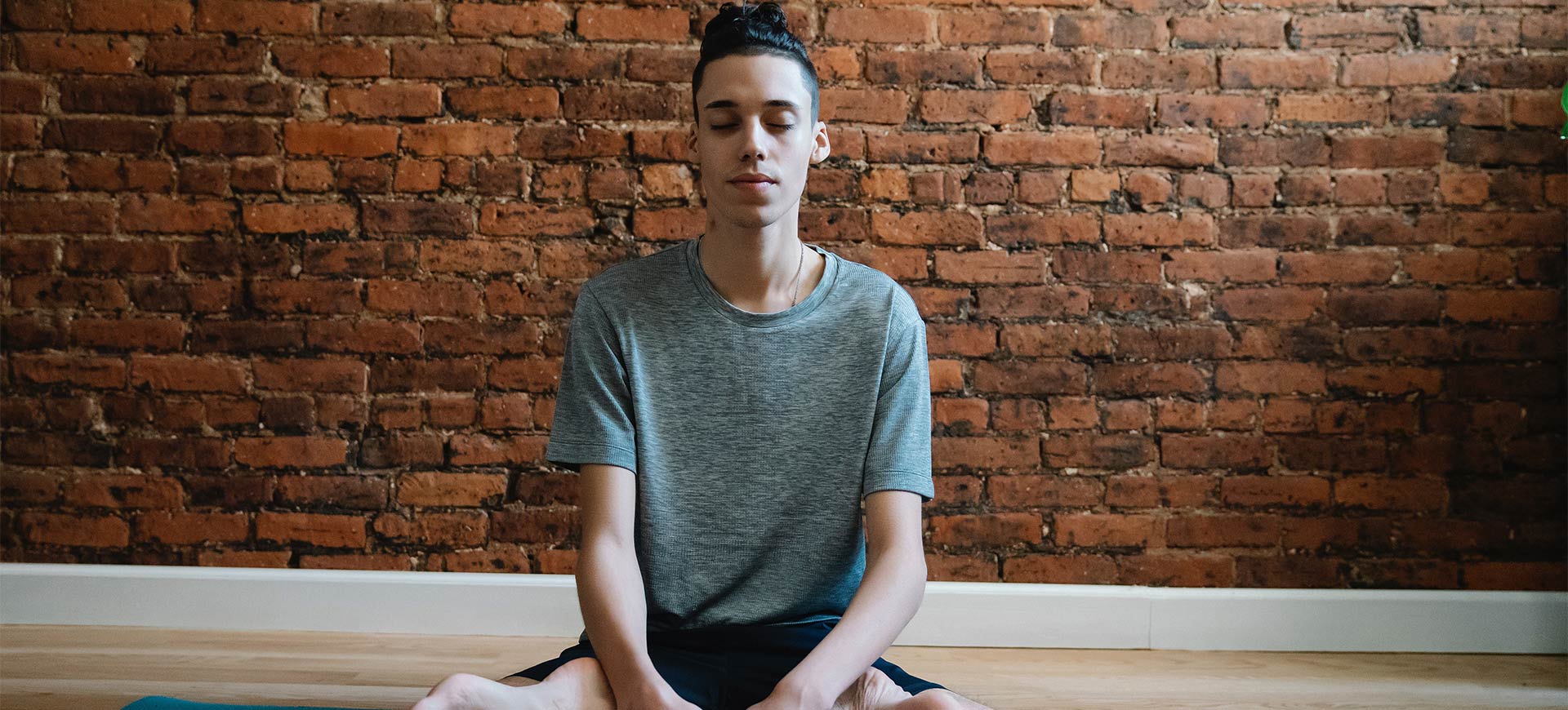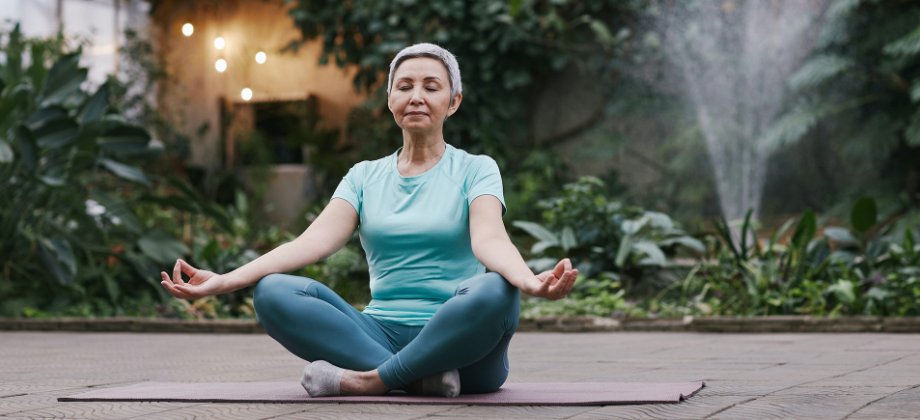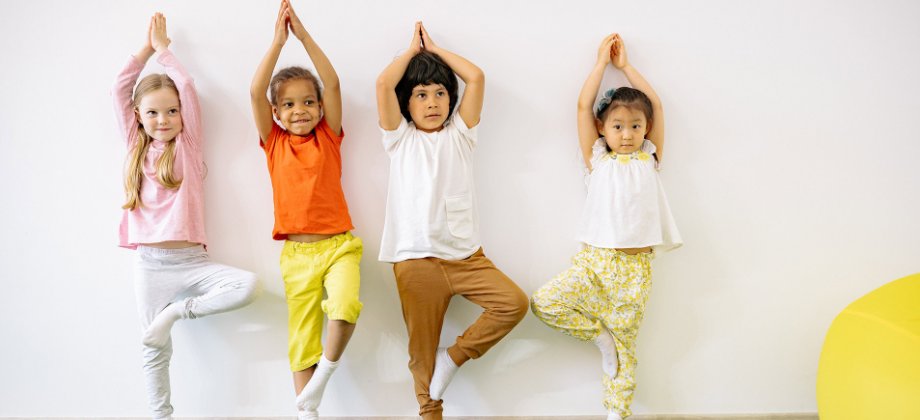
How to Successfully Teach Yoga To Teenagers
Having taught yoga to teenagers in high schools, I can safely say that teaching this age group is not easy, but it is extremely rewarding.
Thinking back to my teenage years, I wonder about the impact a yoga practice could have had on my self-worth, confidence, and mental health in general. Teenagers today can have it hard, mainly due to the constant presence of social media in their lives. Some teenagers are riddled with social anxiety, constantly worrying about the judgment of others and whether they look/are good enough.
When I first walked into the school's sports hall and met my young group of yogis, I could sense their awkwardness and insecurity straight away. However, while I knew that they could benefit profoundly from yoga, I understood it wouldn't be easy to win them over.
Teenagers don't just give their trust immediately, and your usual approach to leading a yoga class won't work with them. You certainly cannot teach yoga to teens as you would teach a group of adult yogis in a studio. So how do you lead successful and beneficial classes for teenagers? Let's discuss.
Understand who your students are
Before you walk into your first yoga for teens class, take some time to remember what it was like being a teenager. What were your everyday worries and concerns? How would you have reacted if a weird yoga instructor turned up one day and told you to close your eyes and breathe? Without getting onto their level and understanding the way they think, you'll struggle to show teens the benefits of yoga.
Along with reflecting on your own experiences, speak to your new group of teen yogis and find out about them. They might not be keen to open up at first, but if you ask them questions in a friendly way and tell them about yourself, they might start to reveal more. Making an effort to learn their names also goes a very long way in gaining their trust.
Sitting still with their eyes closed and focusing on their breath is most likely a foreign concept to them.
Begin with movement
The worst mistake you could make with teaching yoga to teens is asking them to meditate at the beginning of the class. If you understand who you have in front of you, you'll know this is not the wisest option.
Your teens will likely arrive at your class with a ton of energy that they need to release. Plus, teens get uncomfortable and embarrassed when asked to do something unfamiliar. Sitting still with their eyes closed and focusing on their breath is most likely a foreign concept to them.
This is why I always start my teen yoga classes in tadasana. While this is not my preferred way to start sessions, I have found that it's best to get straight into some movement with teenagers. So after the initial greetings and chit-chat, begin with a standing warm-up (think side stretches and open arm twists). From here, move into modified sun salutations as the dynamic flows require their focus, putting an end to any giggles or chatting.
Challenge them
Teens get bored quickly and won't see the benefit of long-held floor postures. However, I've noticed that this age group enjoys challenges, and teaching them difficult postures works wonders for their confidence. Start with standing balances like tree pose and dancers. Then once you've been working with them for a while and they trust you, you can teach them arm balances like crow pose and handstands, which is when the fun really begins!
Implement relaxation at the end of the class
Even though your teen yoga classes will mainly consist of dynamic movement, it's still important to incorporate relaxation. A few minutes of stillness and silence will allow them to experience the mental benefits of the practice.
Teenagers are much more receptive to relaxation practices at the end of the session. Your young yogis will feel physically tired and welcome stillness by this time. I use the term relaxation rather than mediation with this age group. I like to do guided meditations during savasana, helping them experience the importance of being still and quiet in a non-intimidating way. You can find many excellent yoga Nidra scripts specially created for teenagers that are a great resource.
Choose the right music
Just like you wouldn't sequence or lead a yoga class to teens as you would to adults, you probably won't want to use the same music either.
In general, avoid typical traditional Indian yoga music or chanting. If you're up to date on the current tunes and know what teens are listening to, you can take your chances by creating a fun, modern playlist. However, remember that everyone has different music preferences, so while some will love it, others may hate it. Bear in mind that it may also be distracting, so to play it safer, omit using music at all.

Avoid all spiritual talk
If you love sharing yoga philosophy and spiritual teachings, I'd advise you to hold back on this when teaching teenagers. In the beginning, talking about spirituality is more likely to scare your teen yogis off than win them over. However, once you've been teaching them for a while and have built trust, you can gauge how receptive they would be. You might then choose to sprinkle a little bit in, perhaps explaining what namaste means.
Use humor but remain authoritative
I've found that a bit of humor helps teenagers relax and feel more at ease in the sessions, so if it comes naturally to you, why not try to make them laugh. However, while you want them to feel comfortable around you, you're not trying to become their friend. As their teacher, it's vital to remain authoritative, so finding the balance between fun and seriousness is key.
Empower them
The most significant impact you can have on teenagers is to teach them how to use these simple exercises to calm their nerves before an exam or whenever they feel stressed. This is something you can empathize with them in each class.
For example, when guiding them to focus on their breath in savasana, remind them that they can do this independently when they are in bed at night worrying about something. Using the sessions to teach your teens essential tools like this is the thing that will make the most impact.
Final Thoughts
If you have the opportunity to teach yoga to teenagers, please grab it by the horns. By observing your young yogis and learning how to best deliver the practice to this tricky age group, you have the power to make a massive impact on their lives at this transitional time. Furthermore, as their yoga teacher, you could become a significant role model for these teens, guiding them down the right path.






